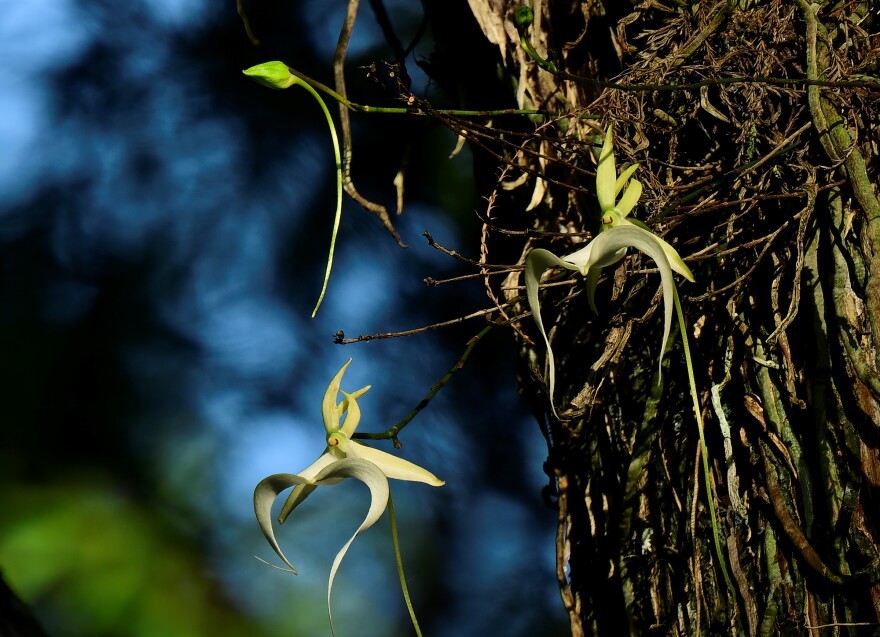By Special to WGCU
Published May 20, 2024

Tony Pernas
The Center For Biological Diversity
The U.S. Fish and Wildlife Service has agreed to decide by June 1, 2025, whether to protect the imperiled ghost orchid.
A news release from the Center for Biological Diversity said the USFWS agreement follows a lawsuit filed by the Center, The Institute for Regional Conservation, and the National Parks Conservation Association.
“We welcome the agreement to finally deliver a regulatory decision,” said George Gann, executive director at The Institute for Regional Conservation. “The ghost orchid is hanging on by a thread and needs the full weight of the Fish and Wildlife Service and the Endangered Species Act to survive and eventually recover to health.”

Language in a "stipulated settlement agreement" signed by the USFWS said:
"On or before June 1, 2025, the Service shall submit to the Office of the Federal Register a 12-month finding as to whether listing the ghost orchid as a threatened or endangered species is (a) not warranted; (b) warranted; or (c) warranted but precluded by other pending proposals, pursuant to 16 U.S.C. § 1533(b)(3)(B)."
The population of the exotic orchid, one of the most famous flowers in Florida, has declined by more than 90% globally and by up to 50% in Florida. Only an estimated 1,500 ghost orchid plants remain in Florida, and less than half are known to be mature enough to reproduce.
The ghost orchid’s current limited range includes the Big Cypress National Preserve, Florida Panther National Wildlife Refuge, Fakahatchee Strand Preserve State Park, Audubon’s Corkscrew Swamp Sanctuary and additional conservation and tribal areas in Collier, Hendry and possibly Lee counties.
The orchids are found in Cuba as well, where they’re also critically threatened.
The Center said the ghost orchid is at risk of extinction from multiple threats, including poaching, habitat loss and degradation and the climate crisis. Recently slammed by hurricanes Irma and Ian, the orchids faced above-normal Atlantic hurricane activity last year due to record-warm sea surface temperatures, resulting in the fourth-most active storm season since 1950. Weather experts currently expect another active Atlantic hurricane season in 2024.
“Help is on the way for the hauntingly beautiful ghost orchid, and it can’t come soon enough,” said attorney Elise Bennett, Florida and Caribbean director at the Center for Biological Diversity. “Endangered species protections would give these enchanting flowers the best shot at weathering climate change, poaching and other threats they face in the years ahead.”
Threats to the orchid continue to grow. In late 2022 two people were caught stealing a ghost orchid and other rare plants from Fakahatchee Strand Preserve State Park.
Meanwhile, in Big Cypress National Preserve, proposals to drill for oil and to expand off-road vehicle access threaten the ghost orchid’s sensitive habitat.
Following a petition filed by The Institute for Regional Conservation, Center for Biological Diversity and the National Parks Conservation Association, the Service determined that the rare native orchid may warrant protection under the Endangered Species Act. The agency initiated a status review to inform a final decision, which the agency was legally required to make in January 2023 but failed to complete.
The conservation groups are represented by the Jacobs Law Clinic for Democracy and the Environment at Stetson University College of Law.
Copyright 2024 WGCU
No comments:
Post a Comment